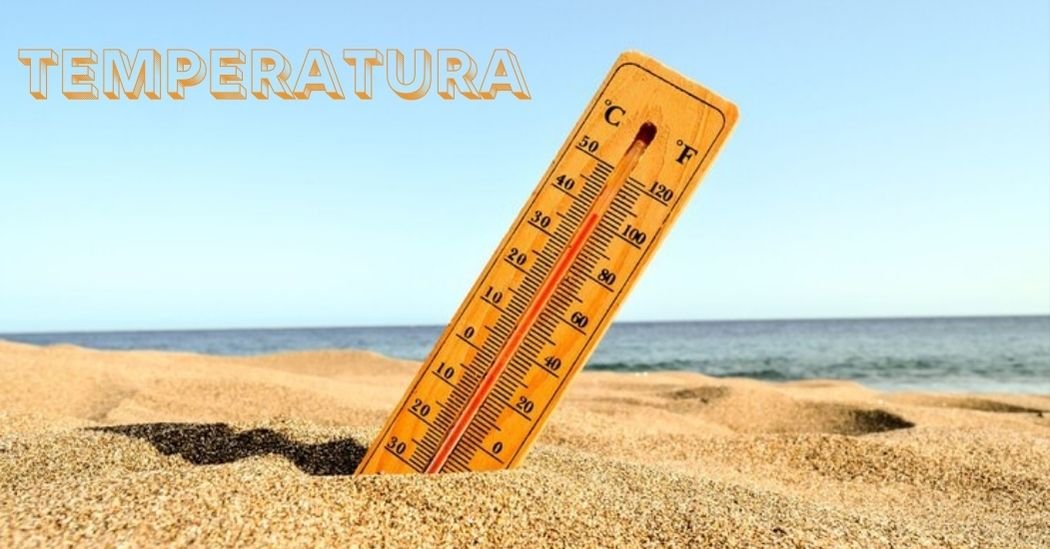Temperatura is a measure of the average kinetic energy of the particles in a substance. It indicates how hot or cold something is. In simpler terms, it’s the degree of warmth or coolness that can be felt. Understanding temperature is fundamental in science, as it influences physical properties and reactions.
Importance of Temperatura in Daily Life
Temperatura affects every aspect of daily life. It determines the clothing we wear, the comfort of our homes, and even our health. For example, dressing appropriately for the weather can prevent illnesses. Temperature control in homes and workplaces ensures comfort and productivity. Additionally, temperature regulation in appliances like refrigerators and ovens is crucial for food safety and preparation.
Temperature Scales Explained
There are three primary scales used to measure temperature: Celsius, Fahrenheit, and Kelvin. Each scale has its unique applications and is used in different parts of the world.
Celsius Scale
The Celsius scale, also known as centigrade, is used worldwide, especially in scientific contexts. It sets the freezing point of water at 0°C and the boiling point at 100°C. This scale is straightforward and commonly used in daily weather reports and academic settings.
Fahrenheit Scale
The Fahrenheit scale is primarily used in the United States. It defines the freezing point of water at 32°F and the boiling point at 212°F. While less intuitive than Celsius, it is deeply ingrained in American culture and everyday life.
Kelvin Scale
The Kelvin scale is used mainly in scientific research. It starts at absolute zero, the point at which particles have minimum thermal motion. One Kelvin unit is equivalent to one degree Celsius, but the scale starts at -273.15°C. This scale is crucial for scientific calculations and understanding thermodynamic principles.
How Temperature Affects the Human Body
Temperatura plays a significant role in human physiology. The human body maintains an internal Temperatura of approximately 37°C (98.6°F). Deviations from this norm can lead to health issues. For instance, hypothermia occurs when the body’s temperature drops too low, while hyperthermia occurs when it rises too high. Both conditions can be life-threatening if not managed properly.
Measuring Temperature Accurately
Accurate temperature measurement is vital in many fields. Thermometers are the most common tools for this purpose. Mercury and digital thermometers are used in medical settings, while infrared thermometers are often used for industrial applications. Ensuring accurate readings is crucial for diagnosing illnesses, conducting scientific experiments, and maintaining safe industrial processes.
The Role of Temperature in Cooking
Cooking relies heavily on temperature control. Different foods require specific temperatures to cook properly. For example, meats must reach a certain internal temperature to be safe for consumption. Baking also demands precise temperature settings to achieve the desired texture and flavor. Understanding how to manage heat in the kitchen can significantly enhance culinary skills.
Impact of Temperature on the Environment
Temperature influences weather patterns, climate, and ecosystems. It affects the distribution of species, the timing of biological events, and the health of ecosystems. Rising global temperatures due to climate change are causing shifts in weather patterns, leading to more extreme weather events and affecting biodiversity.
Industrial Applications of Temperatura Control
In industry, temperature control is essential for various processes. Manufacturing, chemical production, and energy generation all rely on precise temperature management. For instance, steel production requires extremely high temperatures, while pharmaceuticals often need stringent temperature controls to ensure product efficacy.
Temperature and Energy Efficiency
Managing temperature efficiently can lead to significant energy savings. Proper insulation in buildings reduces the need for heating and cooling, lowering energy consumption and costs. Similarly, energy-efficient appliances use advanced temperature control to operate more effectively and reduce waste.
Technological Advances in Temperature Measurement
Technological innovations have improved temperature measurement and control. Digital thermometers, infrared sensors, and smart home systems allow for more precise and convenient temperature management. These advances enhance comfort, safety, and efficiency in various applications.
Safety Precautions in Extreme Temperatures
Extreme temperatures pose risks to health and safety. During heatwaves, staying hydrated, wearing light clothing, and avoiding strenuous activities can prevent heat-related illnesses. In cold weather, wearing layered clothing and protecting extremities can prevent hypothermia and frostbite. Understanding how to stay safe in extreme temperatures is essential for well-being.
Temperature in Medical Diagnostics
Temperature is a critical parameter in medical diagnostics. Fever is a common symptom of many illnesses, indicating the body’s response to infection. Hypothermia and hyperthermia are medical emergencies that require immediate attention. Accurate temperature measurement is crucial for proper diagnosis and treatment in healthcare settings.
Global Warming and Temperature Trends
Global warming refers to the long-term rise in Earth’s average surface temperature due to human activities, primarily the emission of greenhouse gases. This warming trend affects weather patterns, sea levels, and ecosystems. Understanding and addressing global warming is essential for mitigating its impacts on the planet.
Conclusion
Understanding temperature and its effects is fundamental to many aspects of life. From daily activities and health to industrial processes and environmental impacts, temperature plays a crucial role. Accurate measurement and management of temperature can enhance safety, efficiency, and quality of life. As technological advances continue, our ability to control and utilize temperature effectively will improve, benefiting various fields and applications.
FAQs
Why are there different temperature scales?
Different temperature scales were developed based on various needs and historical contexts. Celsius is widely used for its simplicity, Fahrenheit is popular in the U.S., and Kelvin is essential for scientific research.
How does global warming affect temperature?
Global warming leads to higher average temperatures worldwide, causing climate changes, extreme weather events, and impacts on ecosystems and human life.
What is the significance of absolute zero?
Absolute zero is the theoretical point where particles have minimal thermal motion. It is the basis for the Kelvin scale and is essential for understanding thermodynamic principles.
How can I measure temperature accurately at home?
Digital thermometers and infrared sensors are convenient and accurate tools for measuring temperature at home, whether for medical purposes or checking room temperature.
What are the dangers of extreme temperatures?
Extreme temperatures can cause health issues like hypothermia, heatstroke, and dehydration. Taking appropriate precautions during extreme weather conditions is crucial for safety.











